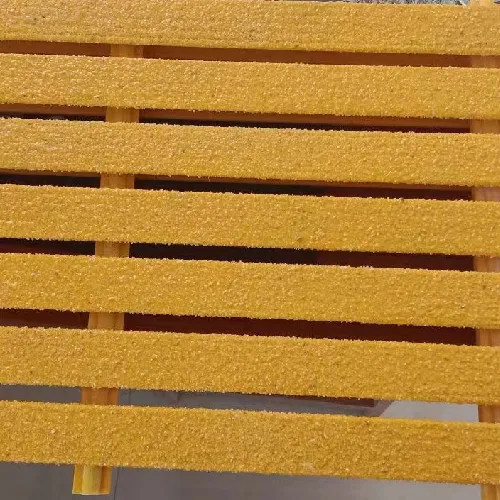loading...
- No. 9, Xingyuan South Street, Dongwaihuan Road, Zaoqiang County, Hengshui, Hebei, China
- admin@zjcomposites.com
- +86 15097380338
- Welcome to visit our website!
FRP Softener Tank for Efficient Water Treatment Solutions
Understanding FRP Softener Vessel A Comprehensive Overview
In the world of water treatment, FRP (Fiberglass Reinforced Plastic) softener vessels have emerged as a key component for effective water softening processes. These vessels are designed to remove hardness-causing minerals, primarily calcium and magnesium, from water, thus preventing scale build-up in pipes, appliances, and fixtures. This article aims to explore the features, benefits, and applications of FRP softener vessels.
What is an FRP Softener Vessel?
An FRP softener vessel is a cylindrical container made from fiberglass reinforced plastic, which combines the lightweight properties of plastic with the strength and durability of fiberglass. The construction of these vessels ensures high resistance to corrosion and chemicals, making them suitable for a variety of water treatment applications. Inside the vessel, a resin-based ion exchange media is used to attract and remove hardness ions from water.
The Working Principle
The softening process within an FRP vessel typically follows the ion exchange principle. As hard water flows through the vessel, it passes over the resin beads contained inside. These beads carry a negative charge and are coated with sodium ions. When hard water enters the vessel, the calcium and magnesium ions from the water bind to the resin beads, displacing the sodium ions. The water that exits the vessel is now softened, with significantly reduced hardness levels.
Over time, the resin becomes saturated with calcium and magnesium and must be regenerated. This is usually done using a concentrated salt solution (brine). The sodium ions from the brine displace the accumulated hardness ions, recharging the resin for future cycles.
Advantages of FRP Softener Vessels
1. Durability FRP vessels are built to withstand harsh environments and are less prone to rust and corrosion compared to traditional metal tanks. This longevity translates to lower maintenance and replacement costs over time.
frp softener vessel

2. Lightweight Being significantly lighter than steel or concrete tanks, FRP vessels are easier to transport and install. This makes them an excellent choice for both residential and industrial applications where space and weight constraints are a consideration.
3. Chemical Resistance The fiberglass material used in FRP vessels is resistant to a broad range of chemicals, which helps in maintaining the integrity of the vessel over extended periods of use.
4. Corrosion Resistance Unlike metal tanks, FRP vessels do not rust or corrode, which can be particularly beneficial in environments where exposure to moisture and chemicals is a concern.
5. Cost-Effective While the initial investment in an FRP softener vessel may be higher than that of conventional systems, the long-term savings associated with reduced maintenance costs and prolonged lifespan often outweigh the initial costs.
Applications of FRP Softener Vessels
FRP softener vessels find applications across various sectors. In residential settings, they are commonly used in households with hard water issues, helping to improve the efficiency of water heaters, dishwashers, and laundry machines. In industrial applications, they are essential in processes requiring high-quality water, such as in power generation, pharmaceuticals, and food processing industries, where water purity is critical.
Additionally, FRP vessels are used in irrigation systems to prevent scale build-up that can obstruct water flow in agricultural applications. Municipal water treatment facilities also leverage FRP softener vessels to ensure the delivery of soft water to residents, enhancing the overall quality of life in communities.
Conclusion
FRP softener vessels represent a significant advancement in water treatment technology. Their durability, lightweight nature, and resistance to corrosion make them an ideal choice for a wide array of applications. As the demand for high-quality water continues to grow, these vessels will play a pivotal role in ensuring that individuals and industries alike can access the soft water necessary to optimize performance and protect equipment. Understanding the benefits and applications of FRP softener vessels is essential for making informed decisions in water treatment strategies, leading to better environmental outcomes and enhanced quality of life.
-
The Rise of FRP Profiles: Strong, Lightweight, and Built to LastNewsJul.14,2025
-
SMC Panel Tanks: A Modern Water Storage Solution for All EnvironmentsNewsJul.14,2025
-
GRP Grating: A Modern Solution for Safe and Durable Access SystemsNewsJul.14,2025
-
Galvanized Steel Water Tanks: Durable, Reliable, and Ready for UseNewsJul.14,2025
-
FRP Mini Mesh Grating: The Safer, Smarter Flooring SolutionNewsJul.14,2025
-
Exploring FRP Vessels: Durable Solutions for Modern Fluid HandlingNewsJul.14,2025
-
GRP Structures: The Future of Lightweight, High-Performance EngineeringNewsJun.20,2025
